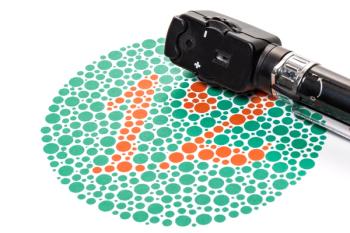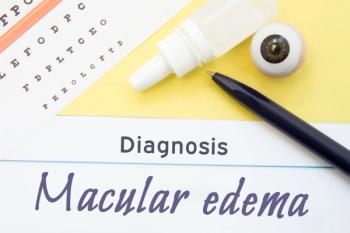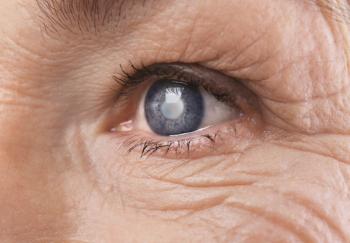
Study Finds Beovu and Eylea Achieve Similar Visual Improvements in Macular Edema
Beovu led to greater improvement in retinal thickness and reduction of retinal fluid in patients with diabetic macular edema, a secondary endpoint in this head-to-head trial.
In patients with diabetic macular edema, treatment with Beovu (brolucizumab) led to greater improvement in retinal thickness and reduction of retinal fluid than Eylea (aflibercept), but there was no difference in visual outcomes, according to the results of a head-to-head trial recently published in
Both therapies are approved to treat patients with age-related macular degeneration and diabetic macular edema. Eylea also is approved to treat patients with diabetic retinopathy, macular edema following retinal vein occlusion and retinopathy of prematurity. Eylea is approved in two doses: an 8 mg dose for a list price $2,625 per single-use vial and a 2 mg dose is available with a wholesale acquisition cost of $1,957.55. Beovu is approved as a 6 mg dose for about $2,036.
Led by Rishi P. Singh, M.D., vice president and chief medical officer at Cleveland Clinic Martin Hospitals, investigators in this trial wanted to assess the outcomes of Beovu vs. Eylea in patients with diabetic macular edema. The study, KINGFISHER, assessed 517 patients with visual impairment from diabetic macular edema, with 346 receiving Beovu 6 mg and 171 receiving Eylea 2 mg. Patients were assessed at 52 weeks. Patients received either Beovu or Eylea every four weeks. Data were collected from September 2019 to March 2020.
The study included both patients who were treatment-naive and who had previously received anti-VEGF therapy. Vascular endothelial growth factor (VEGF) is believed to play a significant role in the abnormal formation of blood vessels in the macula. Several anti-VEGF therapies are available, including Regeneron’s Eylea and Novartis’ Beovu, as well as therapies by Genentech: Lucentis (ranibizumab), Susvimo (ranibizumab), and Vabysmo (faricimab-svoa).
Investigators in the KINGFISHER study found there was no meaningful difference in best corrected visual acuity at week 52, the primary endpoint. A greater proportion of patients in the Beovu arm saw improvements in anatomical features such as retinal thickness and retinal fluid. A great proportion of patients treated with Beovu achieved normal central subfield thickness, and the resolution of retinal fluid and time to absence of retinal fluid was faster. No new safety issues were seen.
Investigators note a limitation of the study was the dosing interval of Beovu during the maintenance phase.
“To our knowledge, this is the first head-to-head study of brolucizumab vs aflibercept dosed at equal intervals, allowing a direct comparison between the two anti-VEGF therapies,” the investigators wrote. “These data may be of value to physicians in showing a direct comparison between brolucizumab and aflibercept and in reflecting a patient profile that is more reflective of patients in clinical practice.”
Newsletter
Get the latest industry news, event updates, and more from Managed healthcare Executive.

























